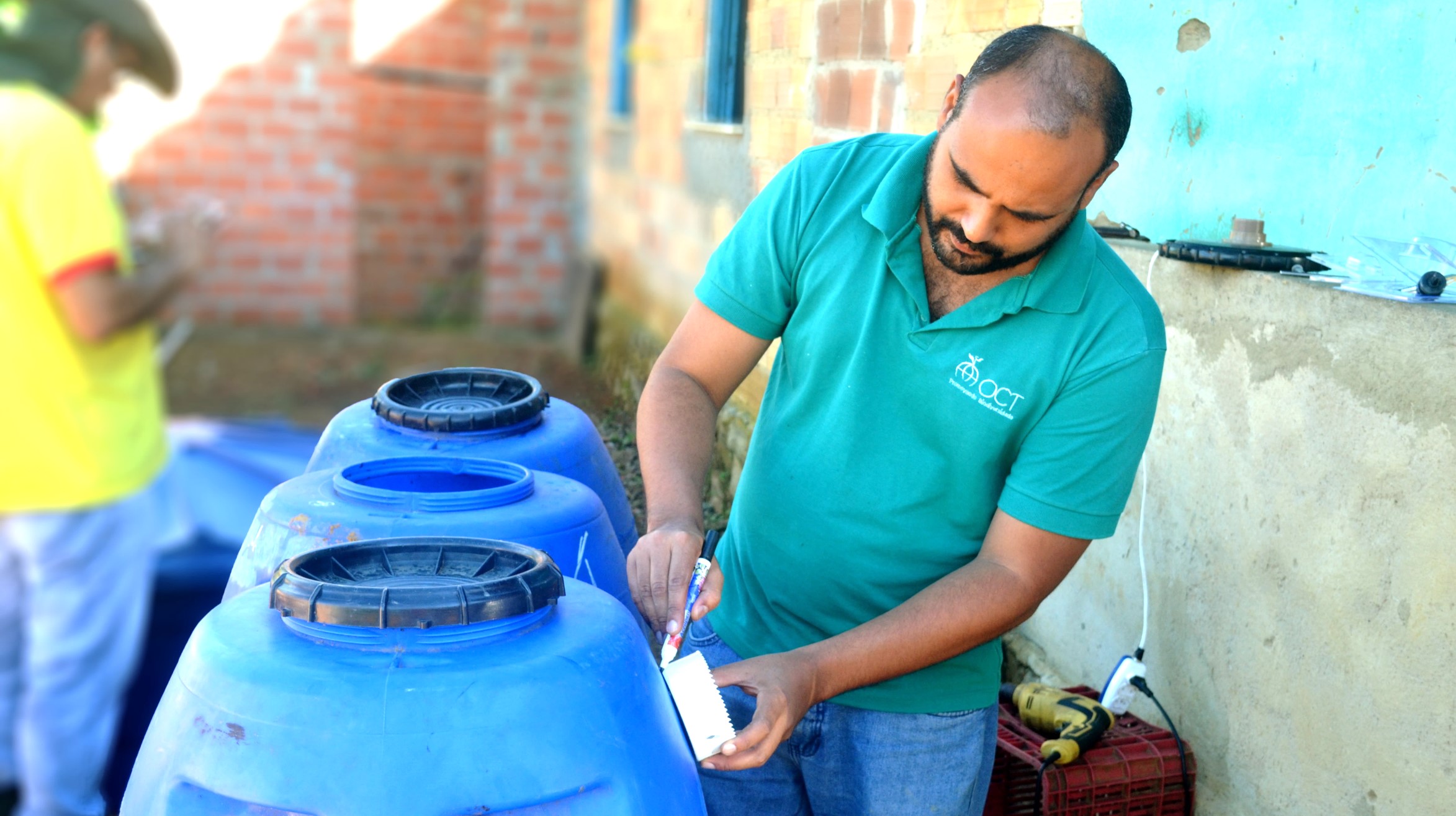“We are made of values. The spirit of serving is present in our daily lives, strengthening our bonds and...
2023 retrospective shows another year of growth for the Norberto Odebrecht Foundation
DATE: 01/11/2024

In 2023, 114 Ecological Septic Tanks were installed on the beneficiaries’ properties
“Educate to impact lives that transform tomorrow.” This is the mission of the Norberto Odebrecht Foundation, which in 2023 demonstrated how the impacts of its work can already be seen in the present.
In the twentieth year since the creation of its Program for Development and Integrated Growth with Sustainability – PDCIS -, the Foundation’s work to combat poverty, exclusion and inequality has reverberated in the lives of more than 19,000 people in rural areas of the states of Bahia and Rio de Janeiro, reaching a total of 20 municipalities and 221 communities.
“Thanks to solid participatory governance driven by trust in the potential of human beings, we have impacted the lives of young people, small producers, their families and communities. We will look to the future ever more united and strengthened,” comments Fabio Wanderley, superintendent of the Norberto Odebrecht Foundation.
20 years of sustainable growth
Created with the aim of promoting profound structural changes and breaking the cycles of poverty, PDCIS actions cover the social, environmental and economic spheres of life for those who are directly or indirectly benefited by the initiative.
In 2023, the 337 students from the Family Houses that are partners in the Program carried out 307 multiplier actions, sharing knowledge with more than 7,000 people and expanding the impact of education to members of local communities. A total of 427 Educational-Productive Projects have also been set up in various cultures, activities which encourage practical learning for young people in training and the growth of their family incomes.
Among the themes of the 87 trainings provided, Female Empowerment, Associativism, and Sustainable Agriculture are some examples of prominence. Technical assistance was also provided, benefiting a total of 210 rural producers.
In order to minimize the precariousness of access to decent basic sanitation conditions, 313 drinking water systems and 114 Ecological Septic Tanks were installed on beneficiaries’ properties last year. In addition, 1,268 personal hygiene kits were distributed to the families served.
Nutrition actions benefited 205 children from the Southern Bahia Lowlands, reinforcing the commitment of the Foundation and partner institutions to combat food insecurity, a problem that affects 70.3 million Brazilians according to data presented in 2023 by the United Nations (UN).
On the environmental front, 17,472 native Atlantic Forest seedlings were produced and 10 springs restored. With this, 133 hectares of land have been conserved by the Land Conservation Organization – OCT, an institution that won an important partnership in 2023 with the International Fund for Agricultural Development – IFAD, a UN agency.
2023: a year of expansion

Rural Family Houses were awarded by Criança Esperança (Child Hope)
The social transformation that the Foundation helped to promote in 2023 led to its recognition, for the second consecutive year, as one of the 100 best NGOs in Brazil in the largest Third Sector award, the “Best NGOs Award.” Two partner Rural Family Houses were also awarded the Criança Esperança (Child Hope) prize by Rede Globo.
In addition, the Foundation had a major achievement last year: seeking to diversify its services, the institution provided the first technical consultancy for client Horiens, helping the company to move forward in structuring its ESG positioning and commitments. Corporate volunteering within the Novonor Group was also strengthened, with the VOCÊ program in partnership with OEC, the Na Onda do Bem program with Ocyan, and the +Elas program from OR.
With regard to expectations for 2024, Superintendent Fabio Wanderley comments: “We remain committed to impacting as many lives as possible and we have a great ambition to expand PDCIS even further.” The Foundation’s proposal is to take the Program, adapted and adjusted, to urban centers, to reapply it in peripheral communities that present great situations of vulnerability, like the city of São Paulo.



No comments